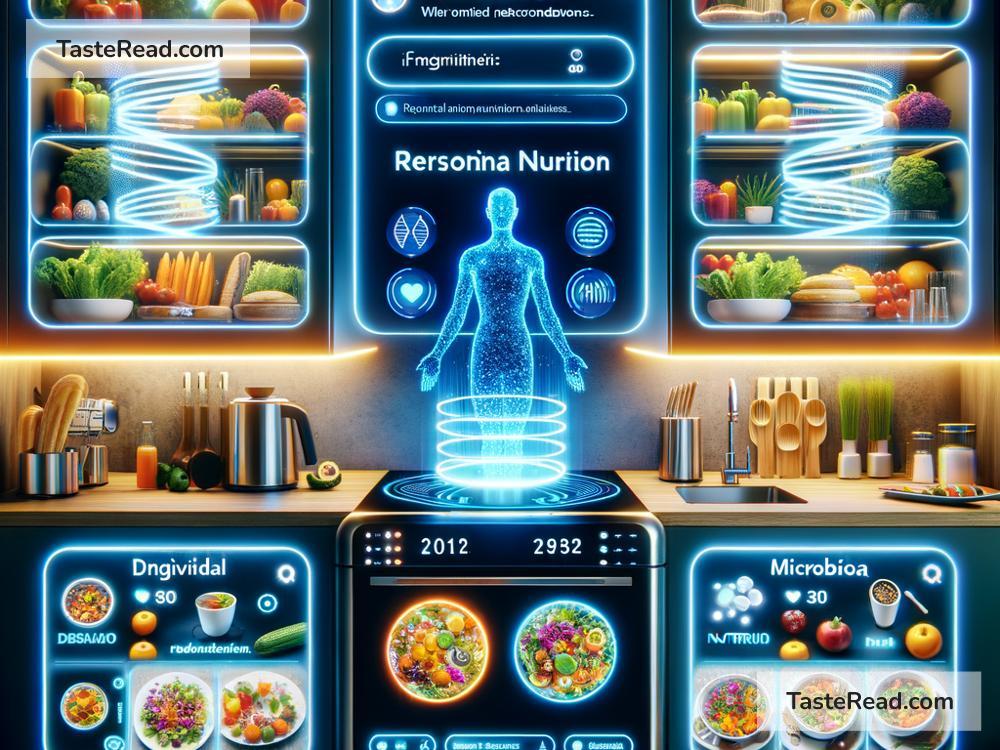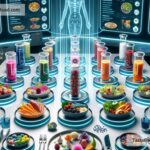The Future of Personalized Nutrition: Food That’s Made for You
Have you ever wondered why some diets work wonders for your friends but leave you feeling tired, hungry, or even unhealthy? The truth is, our bodies are all unique, and the foods that help one person thrive might not be right for someone else. This is why personalized nutrition is becoming more popular and important. It’s a way of eating that is tailored to you—your body, your preferences, and even your DNA.
In this blog, we’ll explore what personalized nutrition is, why it matters, and how the future of food might look completely different because of it.
What Is Personalized Nutrition?
Personalized nutrition means customizing diets and eating habits to match a person’s unique health profile, lifestyle, and goals. Instead of following one-size-fits-all advice, like “eat more fruits and vegetables” or “avoid sweets,” personalized nutrition gets specific. For example, it can suggest which types of fruits are best for your body based on your biology or explain why you might feel better eating protein in the morning rather than at dinner.
Doctors, dietitians, and scientists use a variety of tools to figure out what works for individuals. These tools include genetic testing, blood tests, gut health analysis, wearable devices, and even apps that track your daily habits, such as sleep and activity.
Why Personalized Nutrition Matters
We’ve all heard about the rise of health issues like obesity, diabetes, and heart disease. While these conditions can often be improved through diet, many people feel overwhelmed and confused by the endless stream of advice online. What should we eat? How much? And how do we know if it’s working?
Personalized nutrition cuts through the confusion. It looks at factors like:
-
Your DNA: Our genes can influence how we digest certain foods or how we react to sugar or caffeine. For example, some people can drink coffee at night and still sleep like a baby, while others stay awake for hours.
-
Gut Health: The bacteria in your gut play a huge role in your health. Personalized nutrition can recommend foods that promote the growth of healthy gut bacteria, which can improve digestion, mood, and immune function.
-
Lifestyle: Your job, activity level, and even stress levels affect how your body processes food. Personalized nutrition takes all of this into account.
The goal isn’t just to help you lose weight or avoid illness—it’s to help you feel your best every day. It’s all about creating balance and long-term health.
The Role of Technology in Personalized Nutrition
Technology is making personalized nutrition easier and more accessible. In the past, designing a custom diet might have meant spending hours with a nutritionist and completing expensive medical tests. Today, the process is faster and more affordable thanks to advances in tech.
Here are some exciting examples of how technology is shaping the future of personalized nutrition:
-
DNA Testing Kits: Companies like 23andMe or DNAfit can analyze your genetic makeup and provide insights into how your body reacts to food. For instance, they might tell you if you’re prone to vitamin deficiencies or if gluten is a problem for you.
-
Wearable Devices: Smartwatches and fitness trackers can measure things like heart rate, activity levels, and sleep patterns. Some devices even give feedback on how your food choices are affecting your energy and recovery.
-
Gut-Friendly Diagnostics: New tests can analyze the bacteria in your gut to see what’s working well and what might need improvement. Based on these results, you may get recommendations for specific probiotics or foods.
-
Apps and AI Nutrition Coaches: Apps can track what you eat, how you move, and how you sleep, then use artificial intelligence to suggest ways to improve your habits. They might say, “You’re eating too few healthy fats—try adding avocados or nuts to your meals.”
The Future of Food and Nutrition
What does the future of personalized nutrition look like? Imagine this: You wake up one morning, and your virtual nutrition coach has already planned your meals for the day. It knows what your body needs because it’s been tracking your sleep, activity, and stress levels.
At breakfast, you eat a bowl of personalized cereal, tailored to give you just the right vitamins and minerals for the day ahead. Lunch is delivered to your door, containing foods that match your genetic profile and gut health. By dinner, you’re enjoying a meal you know will help you wind down and sleep better.
Beyond individual diets, personalized nutrition may transform grocery stores and restaurants. Food companies might offer products with labels saying, “This food is ideal for people with low iron levels” or “Great for gut health!” Restaurants could allow diners to customize their meals based on their health data.
Even farming and food production might shift. Farmers could grow crops optimized for certain nutrients, or scientists could develop lab-grown foods that are specially designed for health benefits.
Challenges to Overcome
Of course, the future of personalized nutrition comes with challenges. Privacy is a big concern—sharing your DNA or health data requires trust in the companies handling your information. Cost is another issue. While technology is making personalized nutrition cheaper, it’s still out of reach for many people.
Education is also important. Not everyone knows how to interpret advice from apps or tests. Helping people understand their results and make sustainable changes will be key to success.
Final Thoughts: A Healthier World for Everyone
Personalized nutrition has the power to change the way we think about food and health. By focusing on what’s best for each individual, we can move toward a future where everyone feels their best and lives their healthiest life.
While there’s still a lot to learn, technology is opening the doors to this exciting new world. The idea of food made just for you isn’t science fiction anymore—it’s quickly becoming science fact. Are you ready to embrace it?


